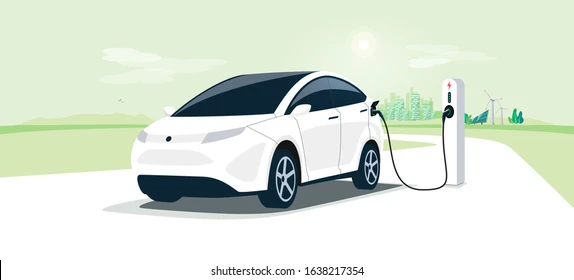New data is constantly getting released as the electric vehicle (EV) market grows. This might be too much for curious potential customers. The how, when, and where of charging your car could be unclear if you’re considering buying an EV.
The most frequently asked questions about charging an electric car with OZEV approved will get answered in this article, including the differences between charging at home and in a public charging station, what to do in the event of a power outage, and more.
How is an electric vehicle charged?
An electric vehicle’s motor gets powered by AC energy, the same type of electricity that enters your home. However, since the electricity in the automobile battery is direct current (DC), like that in a laptop or phone, there is an inverter between the battery and the motor that transforms DC electricity to alternating current (AC).
When you charge your EV, the opposite occurs. There is an inverter between your AC outlet and the automobile that transforms the electricity to DC, just like the charger for your phone or laptop includes a tiny brick that converts AC to DC.
How frequently should I charge an EV?
The size of the battery in your electric car, how energy-efficient it is, and, of course, the way you drive all affect how frequently you charge it.
Recently released electric vehicles have ranges of more than 400 miles and batteries with a capacity of 50 to 200 kilowatt hours or more (kWh).
A 50 kWh battery has a range of between 100 and 300 miles, depending on how effectively the vehicle uses its energy.
Do I always need to charge my EV to 100%?
No. The battery’s lifespan gets increased by maintaining a charge between 20% and 80%, as advised by EV manufacturers. Only fully charge your battery when you’re planning a long vacation. If you’re going to be gone for a while, you should also leave your car plugged in.
Charging at Home
How much time does it take an EV to charge at home?
Your battery will gain around five miles of range per hour when charged using a typical 120-volt outlet.
3 If you commute 30 miles daily, charging would need to last at least six hours. In light of this, the majority of EV owners charge their cars overnight at home when they are dozing off. Keep in mind that charging rates are slower during colder temperatures.
Should I put in a fast charger at home?
Many EV owners only need a conventional 120-volt household outlet to survive. Your vehicle can be available for you in the morning even if a Level 1 “trickle charge” takes seven to ten hours to fully recharge it.
If you require a quicker charge due to daily mileage exceeding a certain threshold, a Level 2 charging station can be practical. A Level 2 charger can cost up to $1,000 to purchase and install. If rapid charging is only required sometimes, it might be less expensive to use a high-speed public charging station for those few occasions.
Can I use the battery from my EV to power my house?
Recent advancements in EV technology enable you to power your home in an emergency, and an electric vehicle is a sizable battery backup. However, only some EVs can get charged from a car to a house.
Public Charging
Where can I find a public charging station?
Public charging stations are available across the nation if you don’t have access to a home charger or are traveling. Although Tesla has the largest network of charging stations, all other electric vehicles can get charged at the charging stations in every other network.
You can use several apps to identify the closest charging outlets or to plan a longer trip. The smartphone apps from Google feature comprehensive, regularly updated EV charging station maps.
How long does it take for a public charging station to complete a charge?
Depending on the model, public EV charging stations with Level 3 chargers (also known as DC Fast Chargers) can occasionally charge an electric vehicle to 100% in as little as 30 minutes. In any case, it requires more time than it does to fill a petrol tank. You don’t always need to recharge your EV to 100%, which is wonderful news. If they have the option to charge overnight at home or a hotel, many EV drivers just recharge at public charging stations enough to get them there.
It makes sense to wait to fully charge your vehicle until you arrive because home charging is much less expensive than public charging in any case, and many lodgings provide complimentary EV charging.
Is it less expensive to refuel an EV than a gas vehicle?
Electricity is always less expensive than gasoline, even if you just use the more expensive DC fast chargers. Nearly everywhere is also cleaner.
The businesses offering free car charging are the most affordable places to charge your vehicle. The second-best choice is to charge at home, where electricity is generally $0.14/kWh. 4 The cost savings throughout ownership can make owning an electric vehicle charging points more feasible in the long run, even though the initial cost of an EV is significantly more than that of a gas-powered vehicle.

